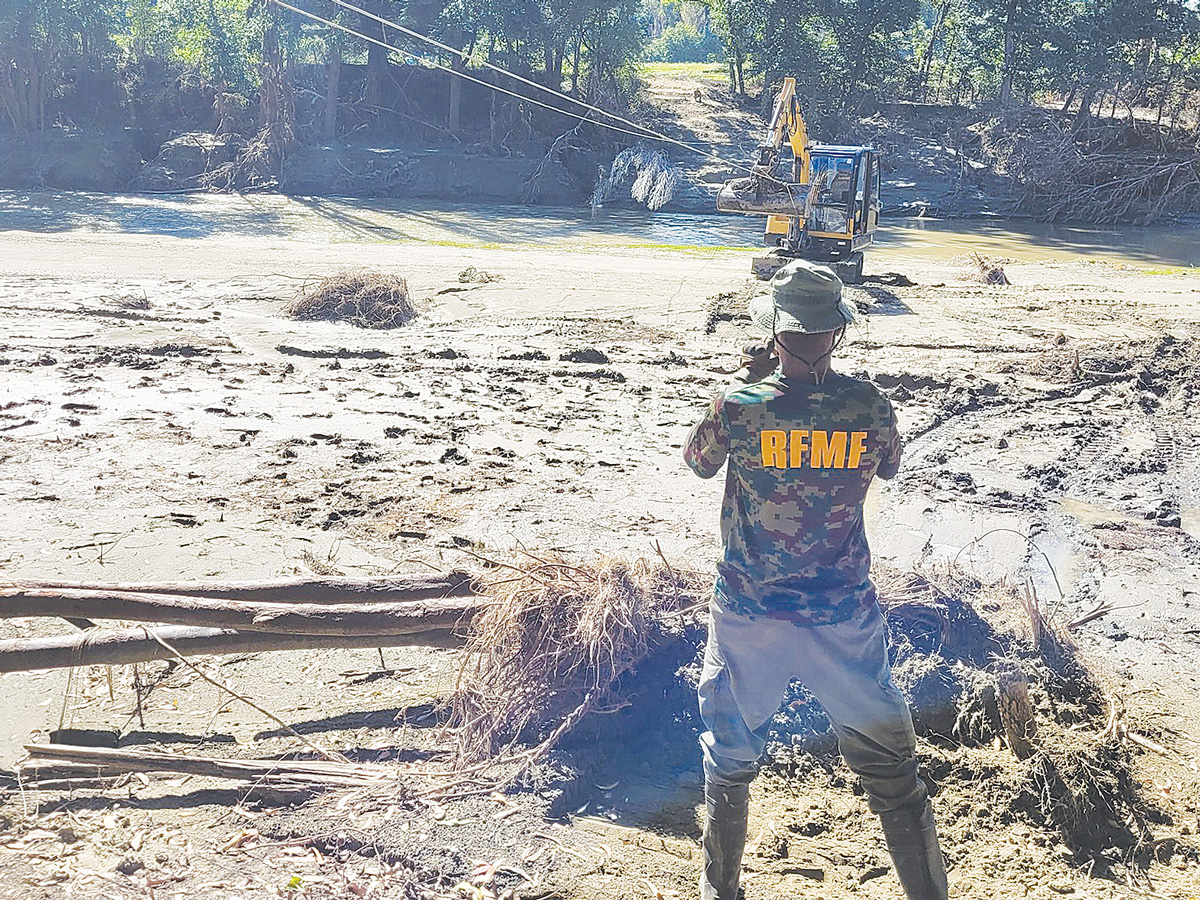Early drought fears ease in Hawke’s Bay, but caution remains
Fears of a serious early drought in Hawke’s Bay have been allayed – for the moment at least.
Farmers and their advisors are scratching their heads trying to work out the best way to deal with metre deep silt that is sitting on top of high-quality lowland pastures in the Hawke's Bay region.
Phil Tither, AgFirst consultant in Hawke's Bay, says many of his clients are trying to come up with the best solution to deal with this problem. He says this difficulty is that no one has ever dealt with a situation like this before and any solutions are likely to be site or farm specific.
According to Tither, farmers on the flats are dealing with the issue of silt and sediment as well as debris which has been washed down from the hills by Cyclone Gabrielle.
"Hill country farmers also have pasture damage which may take time to fully repair. But for these farmers the biggest problem is damaged infrastructure, with fences still down, farm tracks badly damaged and in some cases, proper road access is still not restored," he told Rural News.
Tither says farmers around the Patoka area have been badly affected because the bridge at Rissington was down and this has prevented stock being moved off farm in a timely manner. He says some farmers have managed to get some stock out but are well behind their normal schedule to get stock to the works. Phil Tither says the good prices for stock has at least helped lift spirits.
He says somewhat perversely the heavy rain has resulted in bumper pasture growth and this had made it slightly easier for farmers who have been unable to get stock to the work.
"We've had a great autumn and pasture growth rates are some of the highest we've ever seen," he says.
 |
|---|
|
NZ and Fijian soldiers building a firefox pulley in Rissington last month. Photo Credit: NZ Defence Force |
Tither says hill country farmers are facing a massive task to get their farms back to anywhere near normal and it may take years in some cases to restore the cyclone damage. He says farmers have their heads down and are extremely busy and pushing themselves to the limit.
But he adds that the damage is quite random and farms just a few kilometres apart have not been hit badly while others are badly impacted. He says because of this, some people are able to start moving on while others remain in a crisis mode. For such people there is a high degree of uncertainty about their future.
He syas there is an obvious parallel with the Christchurch earthquake where people were left in a limbo not knowing what the future holds.
Rural News is aware that the local rural support trust has been busy dealing with the needs of individuals. One thing they have down which has proved popular and is well received is organising get-togethers for farmers and communities.
One of New Zealand’s longest-running pasture growth monitoring projects will continue, even as its long-time champion steps away after more than five decades of involvement.
The Insurance & Financial Services Ombudsmen Scheme (IFSO Scheme) is advising consumers to prepare for delays as insurers respond to a high volume of claims following this week's severe weather.
Additional reductions to costs for forest owners in the Emissions Trading Scheme Registry (ETS) have been announced by the Government.
Animal welfare is of paramount importance to New Zealand's dairy industry, with consumers increasingly interested in how food is produced, not just the quality of the final product.
Agriculture and Forestry Minister Todd McClay is encouraging farmers and growers to stay up to date with weather warnings and seek support should they need it.
The closure of SH2 Waioweka Gorge could result in significant delays and additional costs for freight customers around the Upper North Island, says Transporting New Zealand.